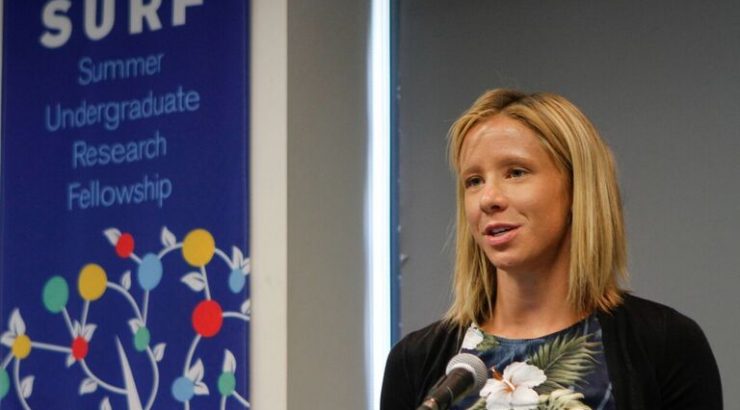
SURF Fellow Danielle Grainger (’17) uses qualitative methods to understand young adults and substance abuse. How can prevention programs grow using the voices of recovered young adults?
March 27, 2018
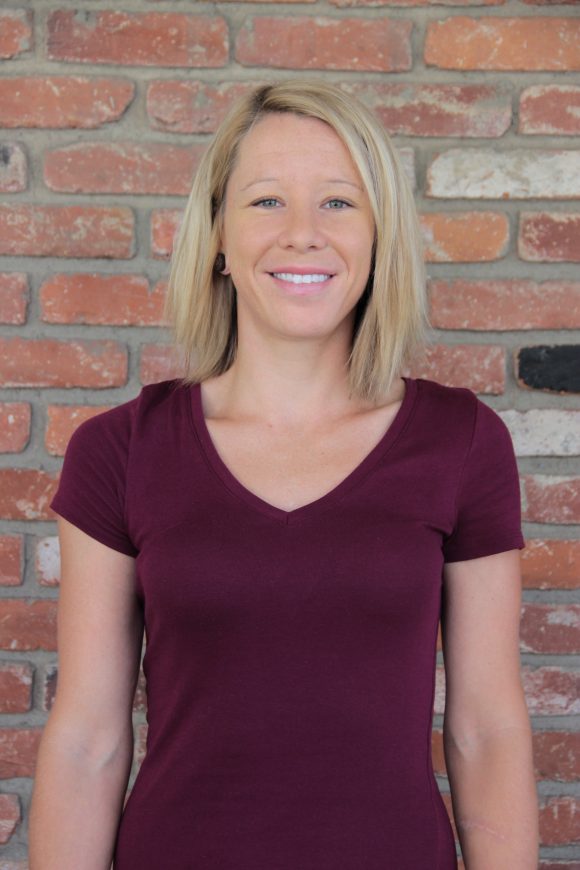 Research and creative activity isn’t limited to theories, numerical data, charts, and proofs. Research has the power to create real change in the lives of others, contributing to activism, social movements, everyday health, and daily obstacles. Center for Undergraduate Excellence’s lauded summer program, the Summer Undergraduate Research Fellowship provides an ample platform to begin working toward this type of change as an undergraduate student with the guidance of experienced faculty.
Research and creative activity isn’t limited to theories, numerical data, charts, and proofs. Research has the power to create real change in the lives of others, contributing to activism, social movements, everyday health, and daily obstacles. Center for Undergraduate Excellence’s lauded summer program, the Summer Undergraduate Research Fellowship provides an ample platform to begin working toward this type of change as an undergraduate student with the guidance of experienced faculty.
2017 SURF fellow and Communications Studies graduate Danielle Grainger (’17) did just that with her summer project and continuing work. Grainger entitled her SURF project, “Understanding Drug Resistance Messages from Young Adults Recovering from Addiction” and intends to continue her work as a Chapman University graduate student in the Health and Strategic Communication Masters program.
Under the mentorship of Dr. Michelle Miller-Day, Grainger describes her mission “to understand the perspectives of young adults who have experienced substance abuse firsthand.” But how can one come to grasp the painful and tumultuous experiences of adolescents and young adults who have undergone the throws of drug and alcohol addiction? And to what end?
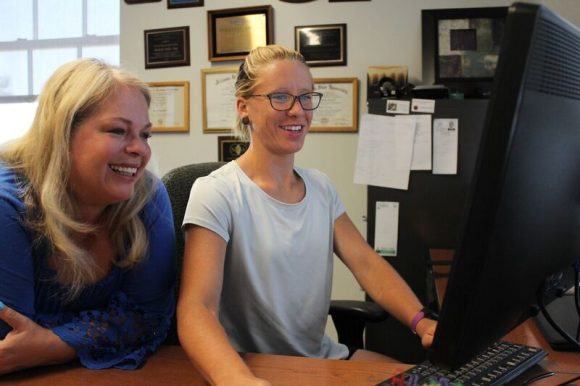
Grainger faced this challenge head on during her SURF summer, describing her process of qualitative data collection and interpretation: “I am interviewing young adults that are recovering from sustained periods of addiction or substance abuse, and I’m basically asking them questions about the causes and conditions surrounding their use, like what factors they perceive contributed to their use, their progression from use to abuse, kind of like their low points and how they wound up actually getting sober, what they do to stay sober, what their network of social support is like, what they do to have fun in sobriety, and also what advice they would have for adolescents to encourage them to avoid going down that road of that whole drug and alcohol lifestyle.”
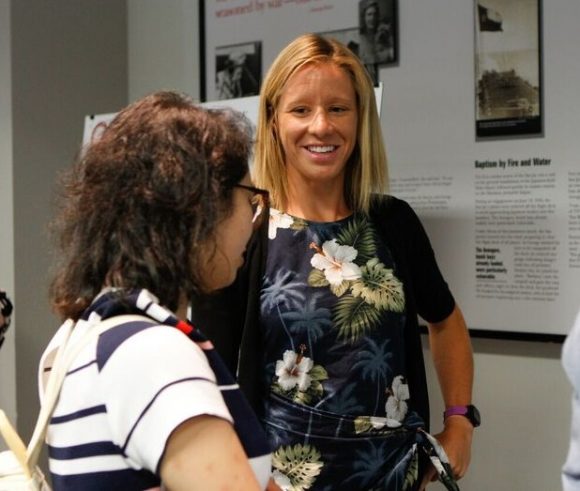
The world of research is undoubtedly one ruled by numbers. But how can the human experience be quantified? Grainger approached the issue of qualitative versus quantitative data collection through interpretation and categorization. Her research method begins with semi-structured interviews recruiting 18 to 25 year old participants via local 12 step meetings and flyers. “The shortest [interview] was 25 minutes and the longest was 55 minutes long.” After recording her conversations with participants Grainger dives into the tedious process of word for word transcription. Grainger notes, “The transcriptions are an average of ten or eleven pages each…even just transcribing the data, which has been the most time consuming part of the project, it has helped me make connections between the different interviews.”
Following transcription, Grainger tackles data analysis, in this case the categorization of qualitative data through identifying key shared themes across interviews.
“It’s a culturally grounded message. And our theory is that it’s going to be more effective and well-received by adolescents because it is actually coming from people that are not much older than them who have actually experience addiction and drug abuse, and can actually tell you what it’s like instead of just saying, you know, ‘drugs are bad, don’t do them.’ That just makes some kids want to do it more.”
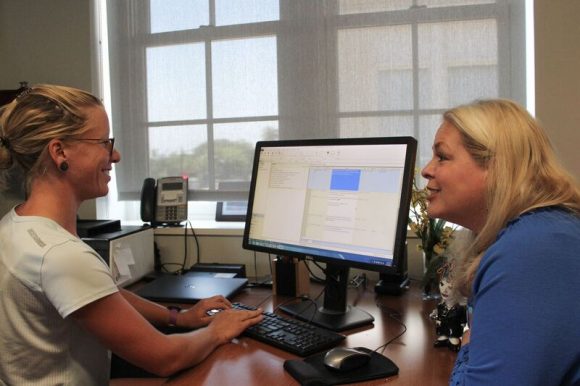 Based on five core questions, but intended to be a more conversational interview. She explains, “It’s not numbers, it’s not like statistics…my faculty mentored described it like grocery shopping. You have all these different themes; you have your produce or your health food, or you have your junk food.” Some themes Grainger identifies in her project include, “social support, first experiences with using, sensation seeking or tendency for thrill seeking behavior, peer pressure, relapse, getting sober, staying sober, social element of using, enhanced sense of self, progression of using,” among others.
Based on five core questions, but intended to be a more conversational interview. She explains, “It’s not numbers, it’s not like statistics…my faculty mentored described it like grocery shopping. You have all these different themes; you have your produce or your health food, or you have your junk food.” Some themes Grainger identifies in her project include, “social support, first experiences with using, sensation seeking or tendency for thrill seeking behavior, peer pressure, relapse, getting sober, staying sober, social element of using, enhanced sense of self, progression of using,” among others.
One key commonality stood out from Grainger’s interviews, the shared incitement of substance abuse was undoubtedly a social factor. Participants identified, “[substance use] allowed them to feel more socially comfortable, that enhanced sense of self…they were that shy kid and this opened them up and made them feel like they could connect to other people, and they were included.”
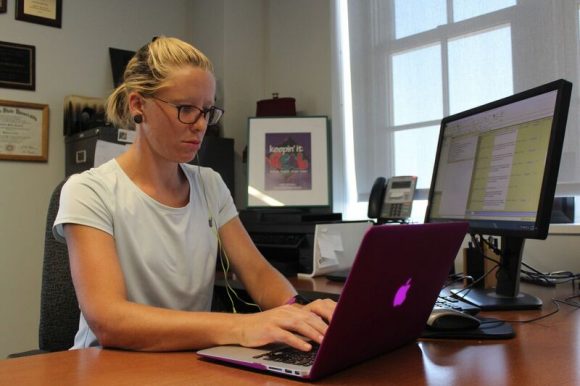 But Grainger does not intend to simply disseminate this information; she is looking to make a tangible difference in the lives of young people facing the pressure to begin using. The ultimate goal of her research is “to contribute to all of the other informative research to hopefully get us that much closer to designing the most successful adolescent substance abuse prevention programs, and hopefully we can provide alternatives to using that are not only appealing to adolescents but preferable.” She shares one such alternative may be the formation of positive social groups, such as trail running clubs, that promote togetherness, social support, and healthy activity. Admittedly, Grainger notes, “it’s kind of like a long way down the road, but this project has definitely inspired a bunch of difference ideas of like how we can actually successfully approach this whole idea of adolescent substance abuse prevention.”
But Grainger does not intend to simply disseminate this information; she is looking to make a tangible difference in the lives of young people facing the pressure to begin using. The ultimate goal of her research is “to contribute to all of the other informative research to hopefully get us that much closer to designing the most successful adolescent substance abuse prevention programs, and hopefully we can provide alternatives to using that are not only appealing to adolescents but preferable.” She shares one such alternative may be the formation of positive social groups, such as trail running clubs, that promote togetherness, social support, and healthy activity. Admittedly, Grainger notes, “it’s kind of like a long way down the road, but this project has definitely inspired a bunch of difference ideas of like how we can actually successfully approach this whole idea of adolescent substance abuse prevention.”
The Summer Undergraduate Research Fellowship served as Grainger’s springboard into the world of research and provided an entry point for her masters level work. Grainger’s work exemplifies the diversity of research and creative activity endorsed and encouraged by Center for Undergraduate Excellence, as both quantitative and qualitative inquiry alike are significant modes of scholarly activity!
Are you interested in pursuing a research or creative project that can make real waves in the community? Apply to SURF and discover where academic inquiry can take you! Learn more at the SURF Information Session held every spring semester or visit the Center for Undergraduate Excellence’s webpage.
Follow and like the Center for Undergraduate Excellence on Facebook for updates on all the amazing opportunities available to Chapman University undergraduate scholars!